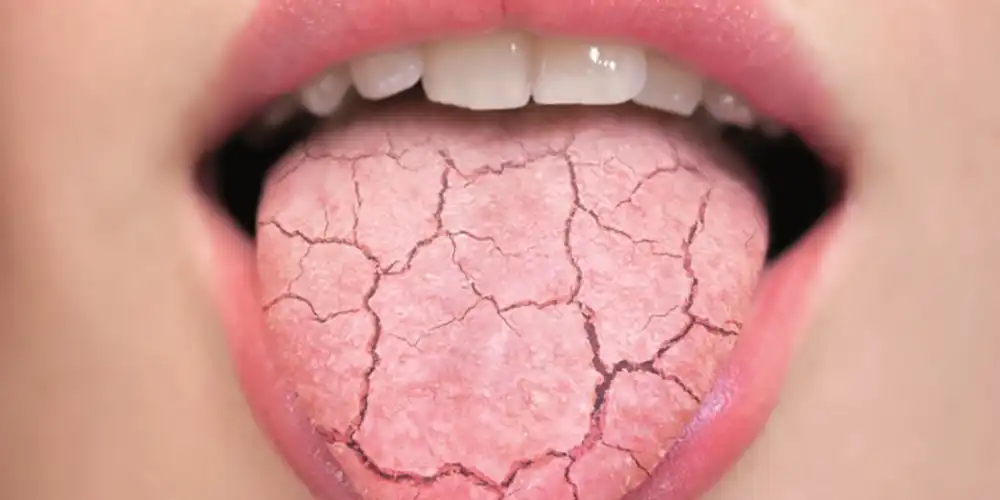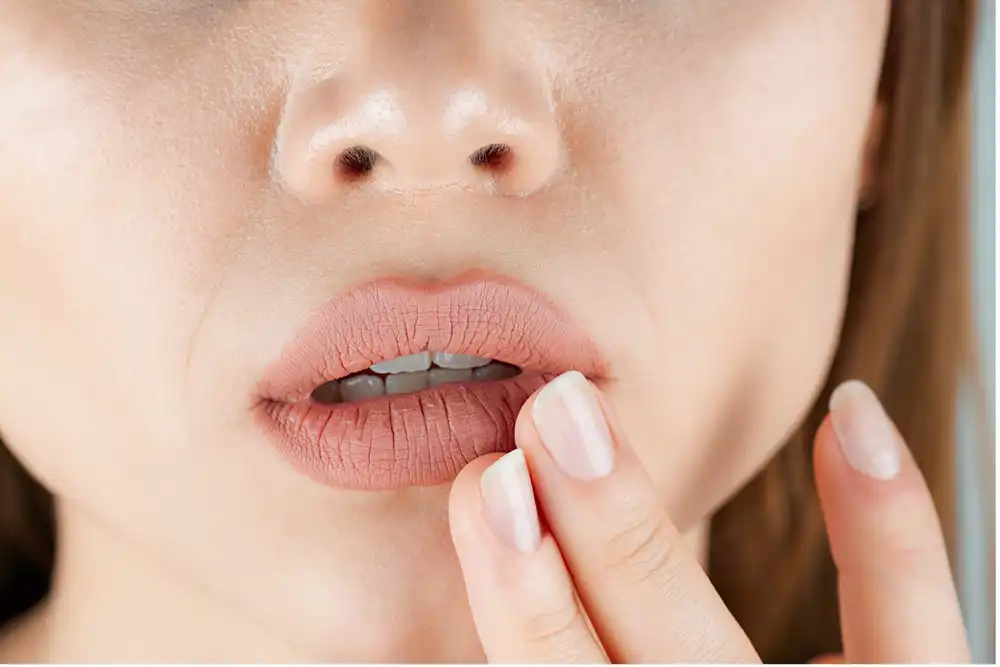Dry mouth, also known as xerostomia, is a common condition that occurs when the salivary glands in the mouth do not produce enough saliva. This can be caused by a variety of factors, including medication side effects, aging, nerve damage, or dehydration. While dry mouth may seem like a minor inconvenience, it can lead to serious oral health problems if left untreated.
Symptoms of Dry Mouth
The symptoms of dry mouth can range from mild to severe and can include:
- A dry, sticky feeling in the mouth or throat
- Difficulty chewing, swallowing, or speaking.
- Bad breath
- Cracked or dry lips
- Sore throat or hoarseness
- Burning or tingling sensation in the mouth or tongue
These symptoms can affect oral health by increasing the risk of tooth decay, gum disease, and mouth infections. Saliva plays an important role in keeping the mouth clean and healthy by neutralizing harmful acids, washing away food particles, and providing a protective coating for teeth and gums.
Complications of Untreated Dry Mouth
If left untreated, dry mouth can lead to more serious oral health problems. Without enough saliva to wash away food particles and bacteria, tooth decay and gum disease can develop more easily. Additionally, chronic dry mouth can cause mouth sores, fungal infections, and even tooth loss.
In severe cases, dry mouth can also affect the ability to taste and digest food properly, leading to poor nutrition and weight loss. It can also affect speech, causing difficulty in pronouncing words correctly.
Treatment Options
There are several treatment options available for dry mouth, including:
- Lifestyle changes: Drinking plenty of water and avoiding caffeine, alcohol, and tobacco can help stimulate saliva production. Chewing sugar-free gum or sucking on sugar-free candy can also help increase saliva flow.
- Medications: Certain medications can cause dry mouth as a side effect. Your dentist or doctor may be able to adjust your dosage or prescribe a different medication to alleviate this symptom.
- Mouth rinses: Over the counter or prescription mouth rinses can help moisturize the mouth and protect against bacteria and plaque buildup.
- Artificial saliva: In severe cases, artificial saliva products can be used to replace natural saliva and provide relief.
- Prescription medications: Some prescription medications, such as pilocarpine and cevimeline, can help stimulate saliva production.
- Biotene products: Biotene is a line of oral care products specifically designed for people with dry mouth. These products include toothpaste, mouthwash, and oral moisturizing gel.
Prevention
Preventing dry mouth from occurring in the first place is the best way to avoid potential complications. To prevent dry mouth, it is important to:
- Drink plenty of water throughout the day
- Avoid alcohol, caffeine, and tobacco.
- Use a humidifier at night to add moisture to the air.
- Chew sugar-free gum or suck on sugar-free candy to stimulate saliva production.
- See your dentist regularly for checkups and cleanings.
Conclusion
Dry mouth can be a frustrating and uncomfortable condition, but there are several treatment options available to alleviate its symptoms. If you are experiencing any symptoms of dry mouth, it is important to speak with your dentist or doctor to determine the underlying cause and find the best treatment plan for you. Additionally, taking steps to prevent dry mouth from occurring in the first place can help maintain good oral health and prevent potential complications down the road.


